Messiahs Take Care of Homeless Persons With Mental Illness
Representational use only.
After leading a regular life in north Kolkata’s Maniktala area for 21 years, Rumpa Goswami turned over a new leaf in 2018. Though she had guessed the mental status of the two women living on the streets near her house, Goswami never approached them. Finally, she decided to help the two schizophrenic women after they were identified by the NGO Iswar Sankalpa, which is dedicated to homeless persons with mental illness.
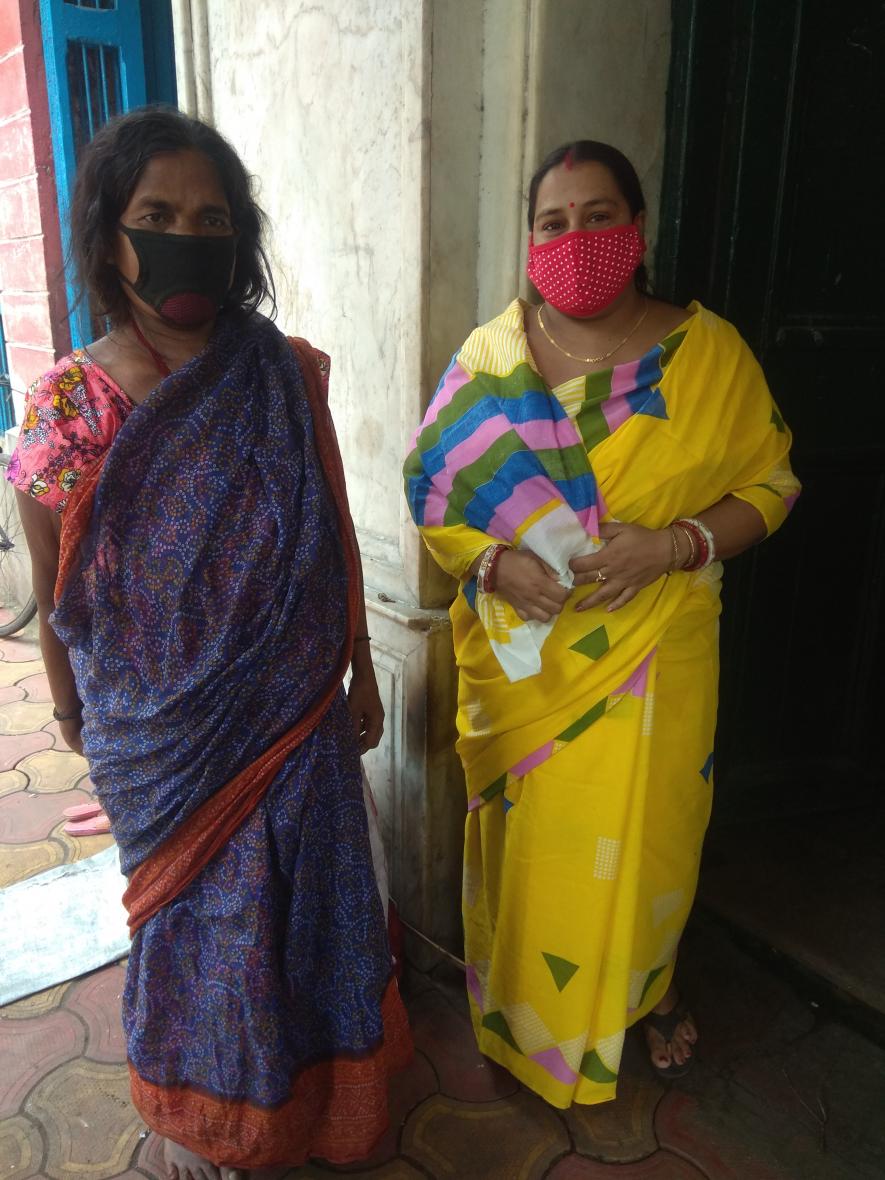
Rumpa (right)with Sunita.
Launched in 2007, and recently recognised by the World Health Organization (WHO) as a ‘model scheme’, Iswar Sankalpa’s Naya Daur project involves a network of voluntary caregivers from the community to support the homeless who are mentally unstable in more than 60 wards in north, south and central Kolkata.
As Goswami poses to share the frame with one of the women in her locality Sunita, she admits that the first reaction was to move on without pausing to think about her and the other woman Basanti. “In 2018, I often saw social workers talking to the two women and giving them medicines. Gradually, I approached them and understood their problem,” she says.
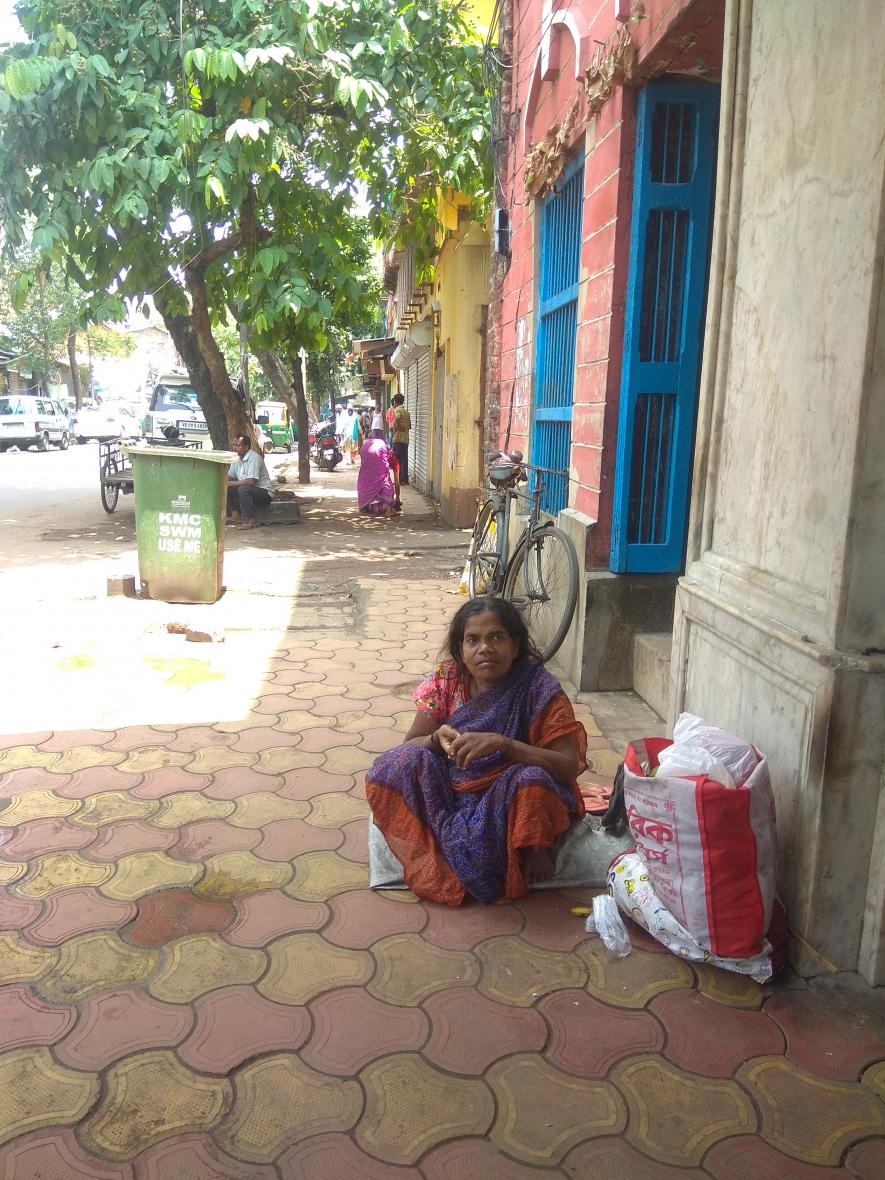
Sunita
There was no looking back for Goswami. “I felt so empowered to change their lives. I provide daily meals and medicines thrice a week to the women and encourage them to take bath everyday to maintain hygiene.”
Admitting that she too would have avoided a person with mental illness like most people before, Goswami says, “Now, it is so liberating to realise that treatment can cure even the most severe mental illness.” Her care for the women is beginning to show. On being asked how she feels, a grinning Sunita says, “I am feeling good these days.”
Since its inception, the project has identified more than 3,000 homeless persons and around 260 caregivers. Currently, the NGO is taking care of 128 homeless persons with the help of 125 caregivers.
MENTAL ILLNESS IN INDIA
India has a serious problem of mental illness. A 2019 WHO report had estimated that around 7.5 per cent of Indians suffer from some form of mental disorder.
The National Mental Health Survey (NMHS) 2016 had revealed that West Bengal had a high incidence of psychosis, including schizophrenia, at 1.26 per cent. The survey was conducted in the states of West Bengal, Punjab, Uttar Pradesh, Tamil Nadu, Kerala, Jharkhand, Rajasthan, Madhya Pradesh, Chhattisgarh, Assam and Manipur. State governments allocate less than 1 per cent of their Budgets to mental health even though 15 per cent of adults in India need treatment for mental disorders, the survey stated.
The survey also noted that derogatory terms like ‘pagol’, ‘khyapa’, ‘mathakharap’—all loosely translating into the word ‘mad’—are used in West Bengal to address people with mental illness. According to the 2011 Census, West Bengal ranks seventh in the list of homeless people with 1,34,040 persons living on the streets.
The homeless with mental health disorders are pushed to the fringes, observes Sarbani Das Roy, secretary, Iswar Sankalpa. The myths and stigma around mental illness make matters worse for the afflicted. “In turn, there is invisibilisation of people with mental illness,” she adds.
CHALLENGES DURING PANDEMIC
The pandemic and the subsequent lockdowns posed new challenges to the volunteers. Though the caregivers held on to their responsibilities, it was difficult to reach the homeless with stringent lockdown measures in place. With the caregivers often belonging to the economically marginalised section, they were under severe financial strain themselves.
“The focus of our project is on recovery. Having a conversation and building a rapport is the first step in improving their lives. If we are talking about preserving human rights, we have to ask ourselves if we are treating them with dignity,” says Roy.
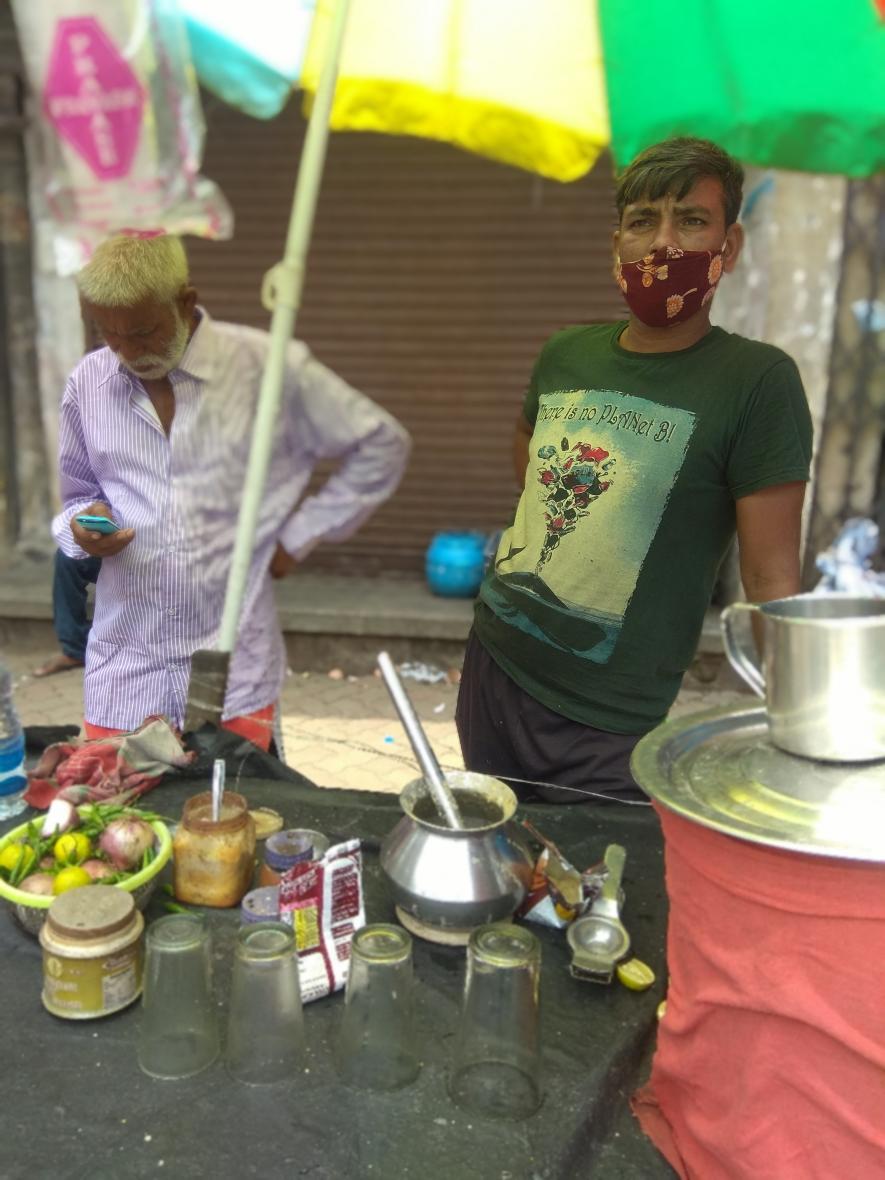
Sonu Kumar gaur + Indrajit Gupta.jpg
Even with his dwindling savings, Sonu Kumar Gaur, who sells sattu sharbat (a drink made with roasted gram flour) by the roadside in Kolkata, does not mind taking care of Indrajit Gupta, a homeless person diagnosed with schizophrenia.
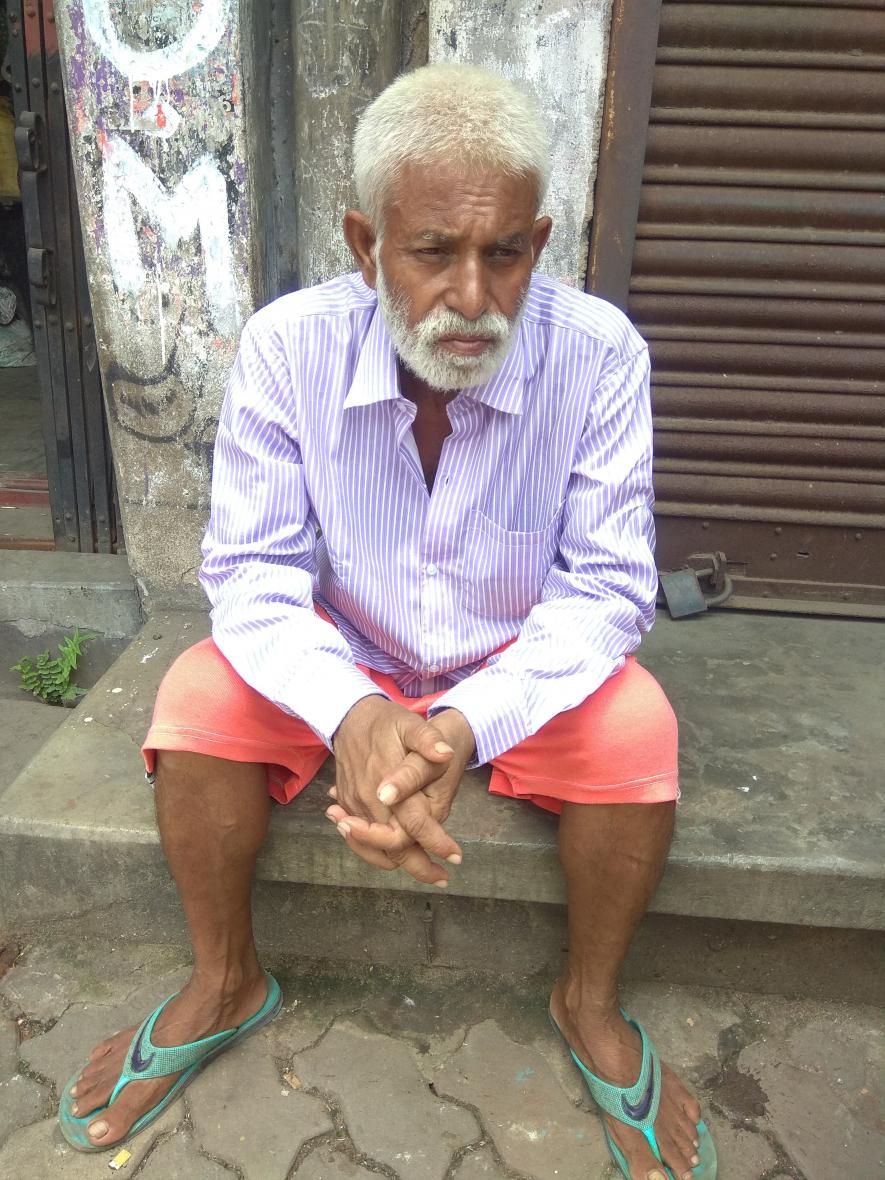
Hailing from Uttar Pradesh’s Ghazipur district, Gaur found it difficult to make ends meet with the lockdown putting him practically out of business. His outstanding rent is Rs 18,000.
“Ek glass pila denge toh kam nahi ho jayega (I will not lose much if I give Gupta a glass of this drink),” Gaur says as he hands out a glass along with the medicines to Gupta. Before shutting shop and heading home, he ensures Gupta gets a daily drink for the night. In the initial days, it was difficult as people in nearby shops would object to a ‘mad’ person in the vicinity. But their attitude is changing for the good, he adds.
FIGHT FAR FROM OVER
Tapasi Kolay, a social worker with Naya Daur, points out Gupta’s progress since he was identified by the team. Recounting his struggle and how he was pushed out of his home, Gupta shows his new cell phone that he recently bought with his earnings. “I am coming back on track,” he says in a steady voice.
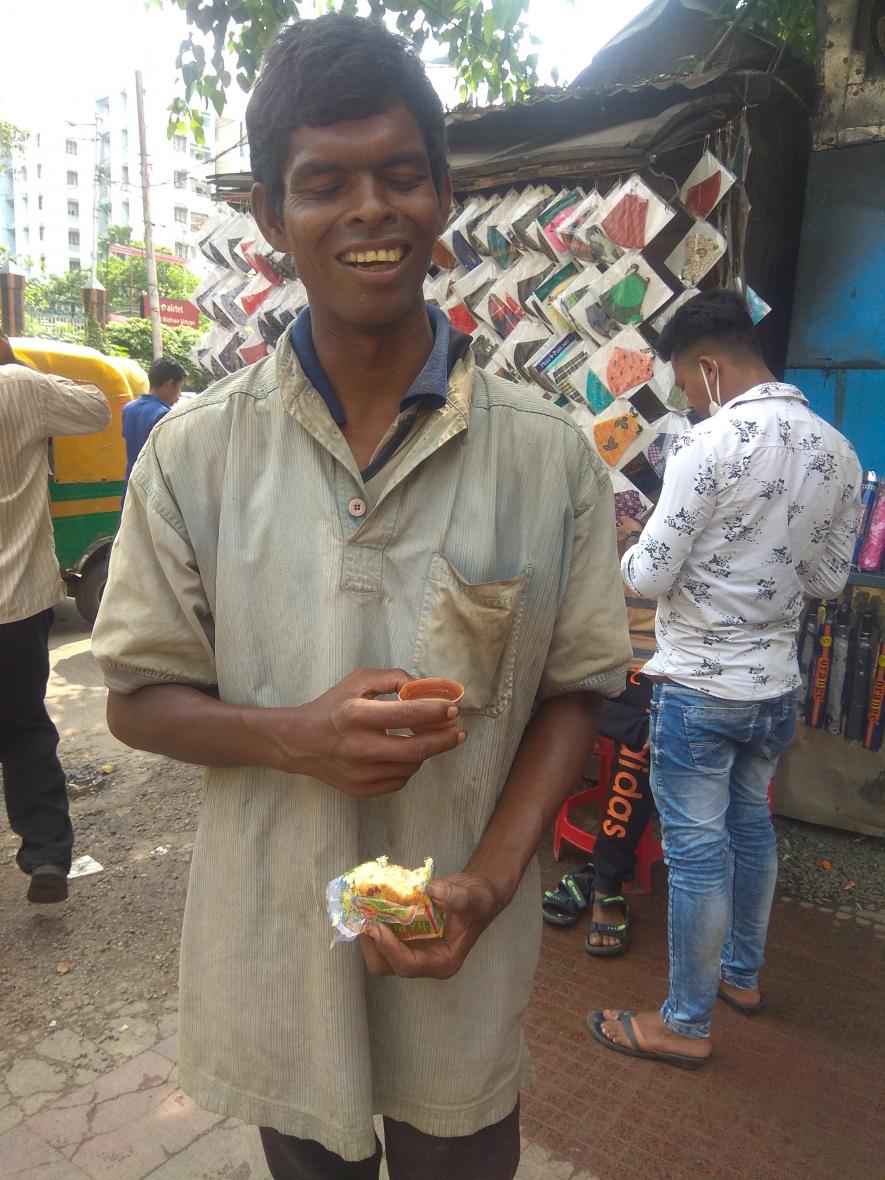
Somnath Pramanick.
Swapan Saha, who ekes out a living by selling poori sabzi, say the lockdown made it difficult for him to give medicines to another schizophrenic Somnath Pramanick. “It took us a lot of time to build trust and rapport with the people we are taking care of. In the initial days, it was difficult for me to give Somnath the medicines. When he is not around, I give the medicines to his father,” says Saha.
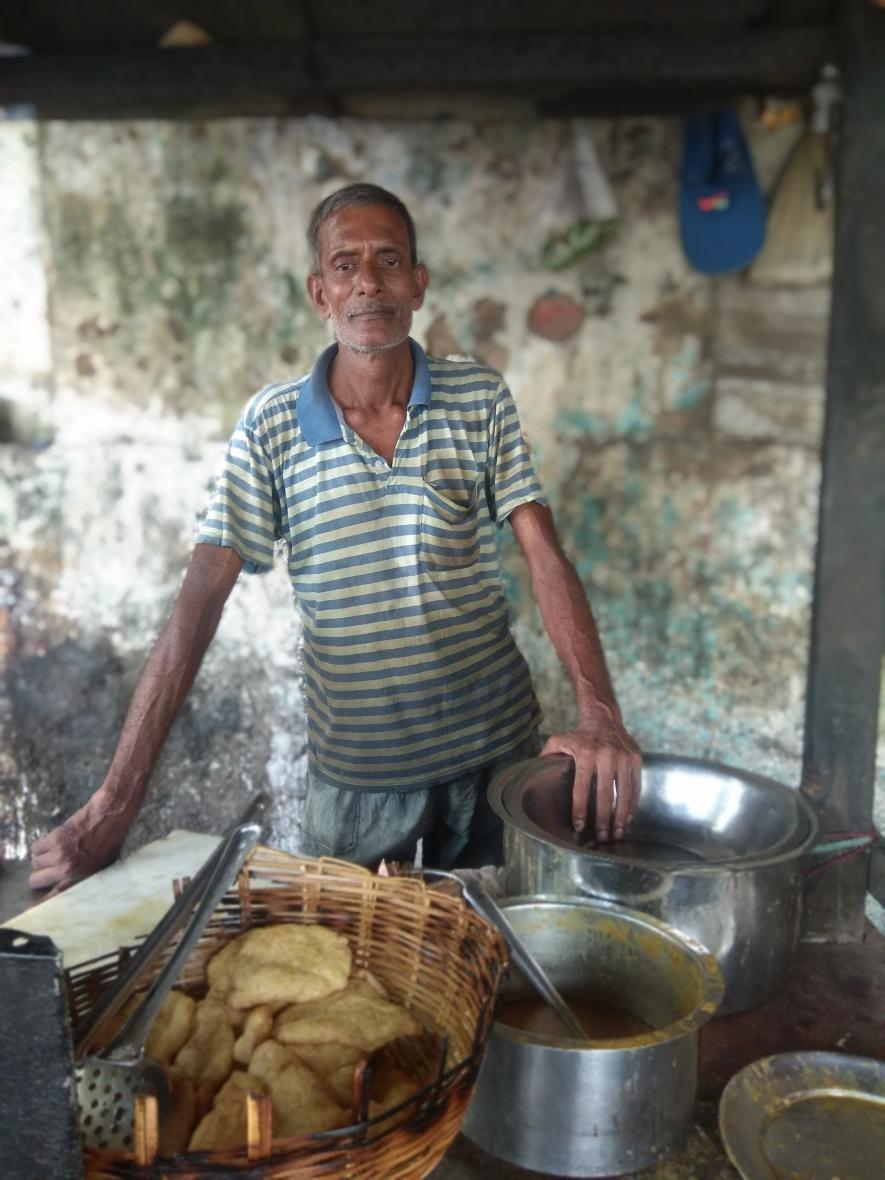
Swapan Saha.
Outside Bidhan Nagar railway station in Kolkata, Pramanick recites a dialogue verbatim from Hindi movie Jaani Dushman: Ek Anokhi Kahani believing he has acted in movies. Before being rushed to work by Kolay, Pramanick happily adds that he often takes the “train to shoot movies”. “With medication, he has been improving. When we found him, he was living on the streets. Now, he stays at home on most days,” Kolay adds.
Mrinmoyee Bose, programme officer, homeless programmes, Iswar Sankalpa, says the pandemic made face-to-face interaction with the homeless almost impossible. “A lot of progress made in the past was reversed. Social workers build a proxy family for their clients. We actively look out for people showing symptoms of mental illness at transit points—railway stations, bus depots and places where people often end up after leaving home or being abandoned,” says Bose.
For the social workers, the fight is long from over. With an impending third wave of the pandemic, the team is all set to learn from the past challenges and reinvent itself. Physical visits of doctors may continue to be replaced with virtual check-ups. It has organised relief materials for the community of caregivers in need who relentlessly support the homeless with mental health disorders.
But the biggest fight is being put up by the afflicted. Jhinuk Sarnakar has fought hard to give up her makeshift space. As she explains her immediate needs to a social worker and says she is taking her medication regularly, hope is evident. The person in the neighbouring shop promises the social worker to get Sarnakar a packet of roasted gram flour and some Electral powder. “We are all in this together,” he says reassuringly.
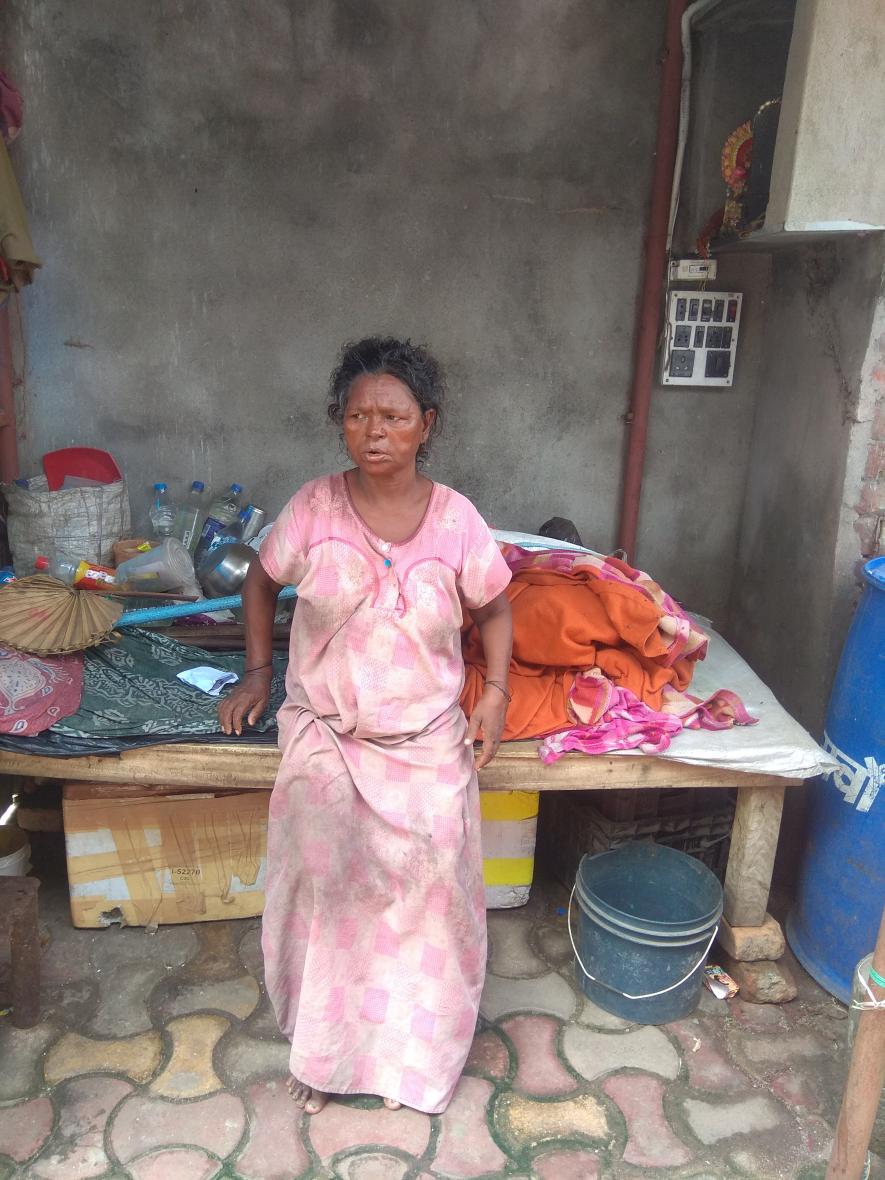
Jhinuk Sarnakar.
The writer is an independent journalist based in New Delhi. The views are personal.
Get the latest reports & analysis with people's perspective on Protests, movements & deep analytical videos, discussions of the current affairs in your Telegram app. Subscribe to NewsClick's Telegram channel & get Real-Time updates on stories, as they get published on our website.
























